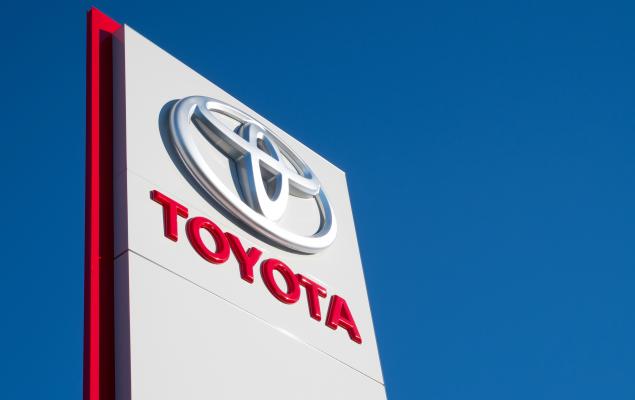Is Japan’s Car Industry Facing a ”Dieselgate” Moment?

In a major blow to Japan’s prestigious automotive industry, five leading Japanese automakers — Toyota TM, Honda HMC, Mazda MZDAY, Suzuki, and Yamaha — have been accused of falsifying vehicle safety test data. The scandal bears an eerie resemblance to the 2015 Volkswagen VWAGY Dieselgate debacle.
What’s the Scandal All About?
The Ministry of Land, Infrastructure, Transport and Tourism of Japan uncovered that Toyota, Honda, Mazda, Suzuki and Yamaha engaged in fraudulent activities during the certification process of certain vehicle models. These companies have submitted incorrect or manipulated test data during vehicle certification.
The investigation was prompted by Toyota’s unit Daihatsu, which halted shipments last year due to collision safety testing issues. The subsequent investigation revealed widespread manipulation of tests dating back decades, affecting numerous models. Other Japanese automakers, Honda, Suzuki, Mazda and Yamaha, were also implicated, as they admitted to irregular certification testing practices.
The ministry directed the five companies to suspend shipments of the implicated models until compliance was confirmed and on-site inspections conducted. A total of 38 models from these manufacturers were found to have undergone improper certification for safety and environmental performance.
The Core Issues
At the heart of the scandal is the outdated nature of Japan’s vehicle certification system. According to Takaki Nakanishi, CEO of the Nakanishi Research Institute, Japanese carmakers were producing vehicles that exceeded domestic standards but failed to adhere to the specific procedures mandated by the Japanese certification system. For instance, Toyota used a crash test dolly weighing 1.8 tons instead of the 1.1 tons required by law, thereby violating domestic regulations despite the higher standards.
The ministry’s inspection revealed various discrepancies, such as incorrect collision damage measurements, inadequate or outdated data in collision tests, and improper testing of airbag inflation and rear-seat damage in crashes. These discrepancies were not limited to Toyota. Mazda admitted to using incorrect engine control software and crash test violations, Honda found wrongdoing in noise and output tests and Yamaha falsified data on noise-level tests for motorbikes.
Echoes of Dieselgate
The Japanese car testing scandal has drawn inevitable comparisons to Volkswagen’s Dieselgate. In 2015, Volkswagen admitted to installing software in diesel engines that could cheat emissions tests, leading to over $30 billion in fines and damages globally. The parallels between Japan’s car-testing scandal and Volkswagen’s Dieselgate involve major automakers engaging in deceptive practices related to vehicle certification. However, while Dieselgate involved deliberate manipulation of emissions tests to deceive regulators, the Japanese scandal appears to stem from procedural lapses and outdated testing methods rather than malicious intent.
Impact and Repercussions
Well, Japan’s car testing scandal comes at a critical time for the nation’s auto industry, which is facing intense competition from Chinese manufacturers who have embraced electric vehicles (EVs). China recently overtook Japan as the world’s largest car exporter, a shift driven by booming EV sales.
Toyota, the world’s top-selling carmaker, has halted domestic shipments of three models and apologized publicly. The financial impact remains uncertain but analysts believe that the reputation damage, though significant, will be temporary. Felipe Munoz from JATO Dynamics points out that Toyota’s global reputation and the popularity of its vehicles might mitigate long-term damage.
Japan’s Transport Ministry is conducting on-site inspections and the investigation is expected to take several months. The ministry aims to modernize the certification system to prevent future occurrences, and the government is taking steps to minimize economic damage.However, the road to recovery may be fraught with challenges as the industry confronts heightened scrutiny and the need for systemic reforms.
Conclusion
As Japan’s Transport Ministry conducts further inspections and the affected companies work to regain compliance, the industry must address the systemic issues that allowed such discrepancies and implement reforms to prevent future incidents. Greater transparency and adherence to both domestic and international standards will be essential in restoring trust and ensuring the long-term sustainability of Japan’s automotive sector.
Want the latest recommendations from Zacks Investment Research? Today, you can download 7 Best Stocks for the Next 30 Days. Click to get this free report
Toyota Motor Corporation (TM) : Free Stock Analysis Report
Honda Motor Co., Ltd. (HMC) : Free Stock Analysis Report
Mazda Motor Corporation (MZDAY) : Free Stock Analysis Report
Volkswagen AG Unsponsored ADR (VWAGY) : Free Stock Analysis Report
To read this article on Zacks.com click here.